Cleaning the world’s most high-tech onion factory
A brand new factory on the south coast of the Netherlands proves that innovation in agricultural processing is not a utopia: MSP Onions boasts the largest fully automatic onion processing line in the world. Thanks to Modesta Filters’ smart air technologies, dust is reduced to a minimum. Residual flows are disposed of efficiently and completely dust-free. This leads to minimal downtime and wear and tear of machines, a cleaner product, and a pleasant working environment. Modesta was involved in the new factory from the very beginning and could therefore advise extensively on dust handling and fire risks. We spoke with Modesta and MSP Onions about the collaboration.
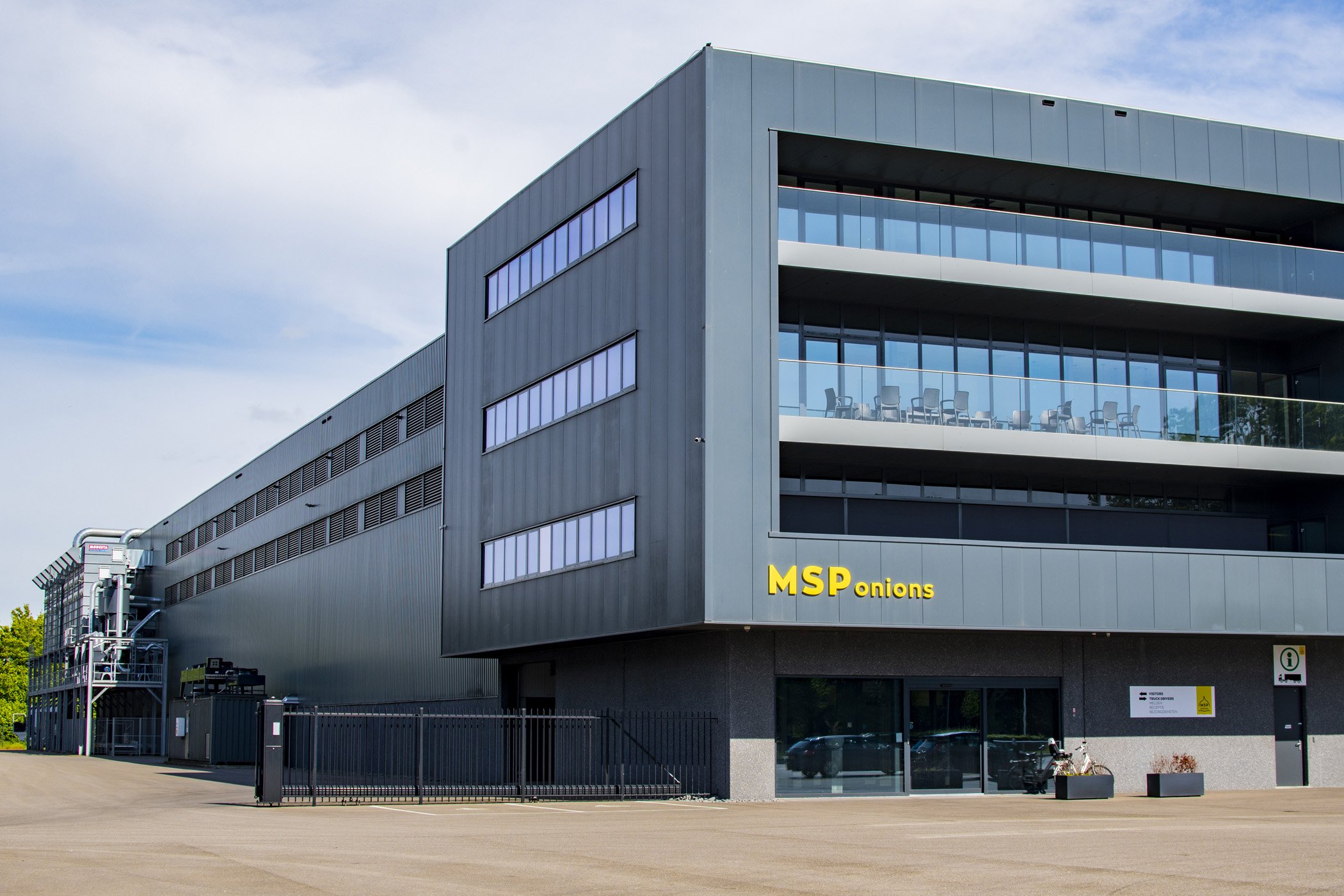
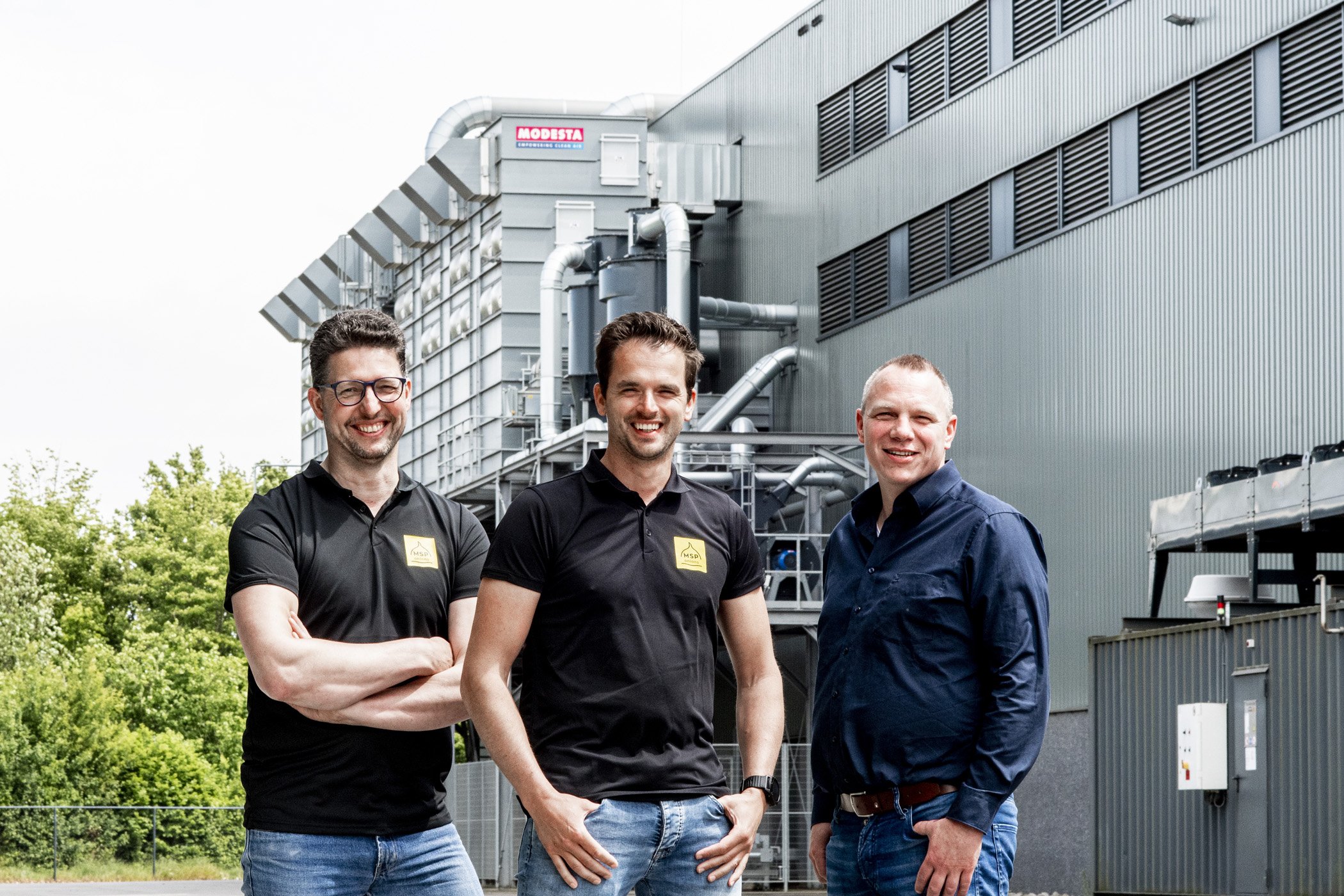
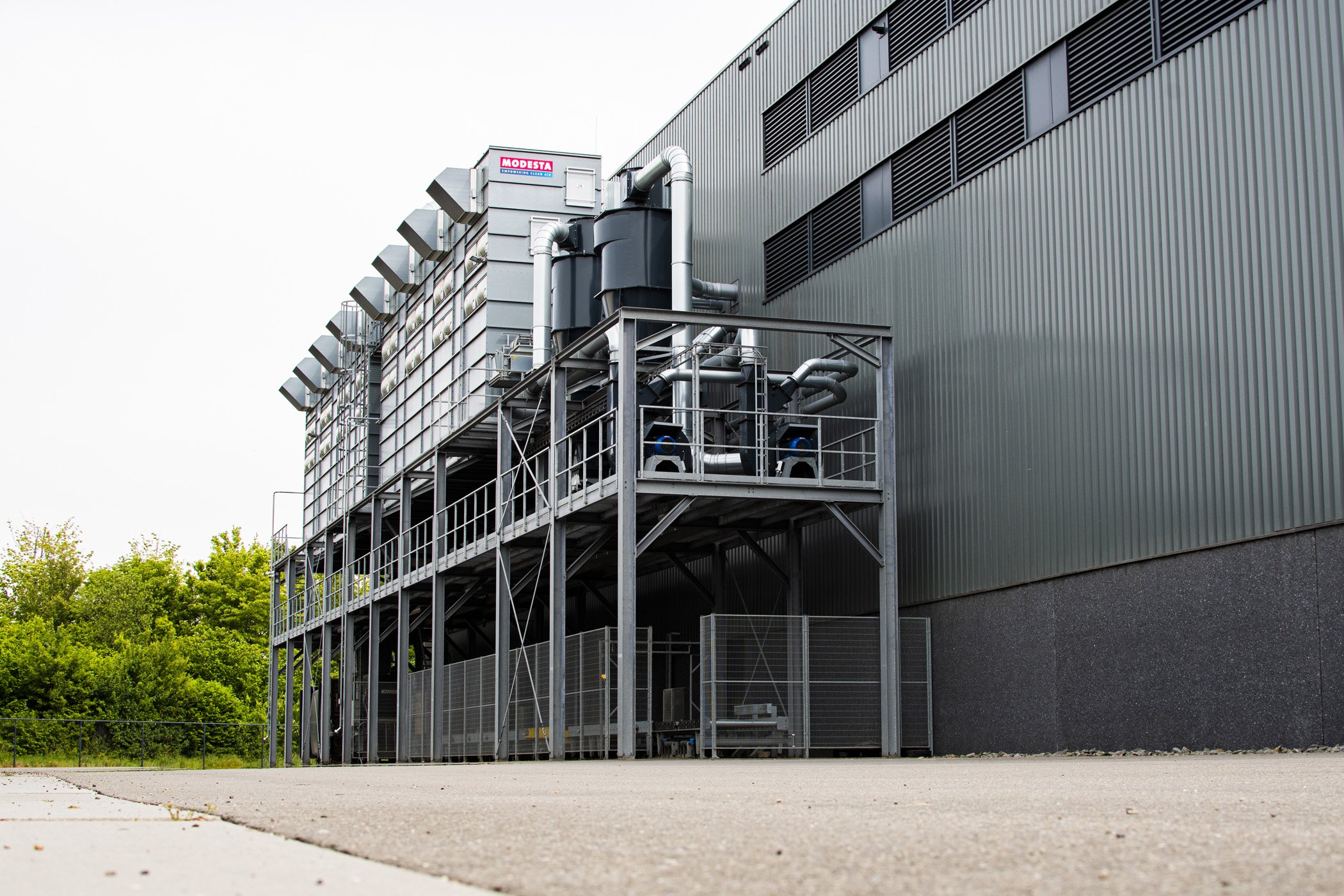
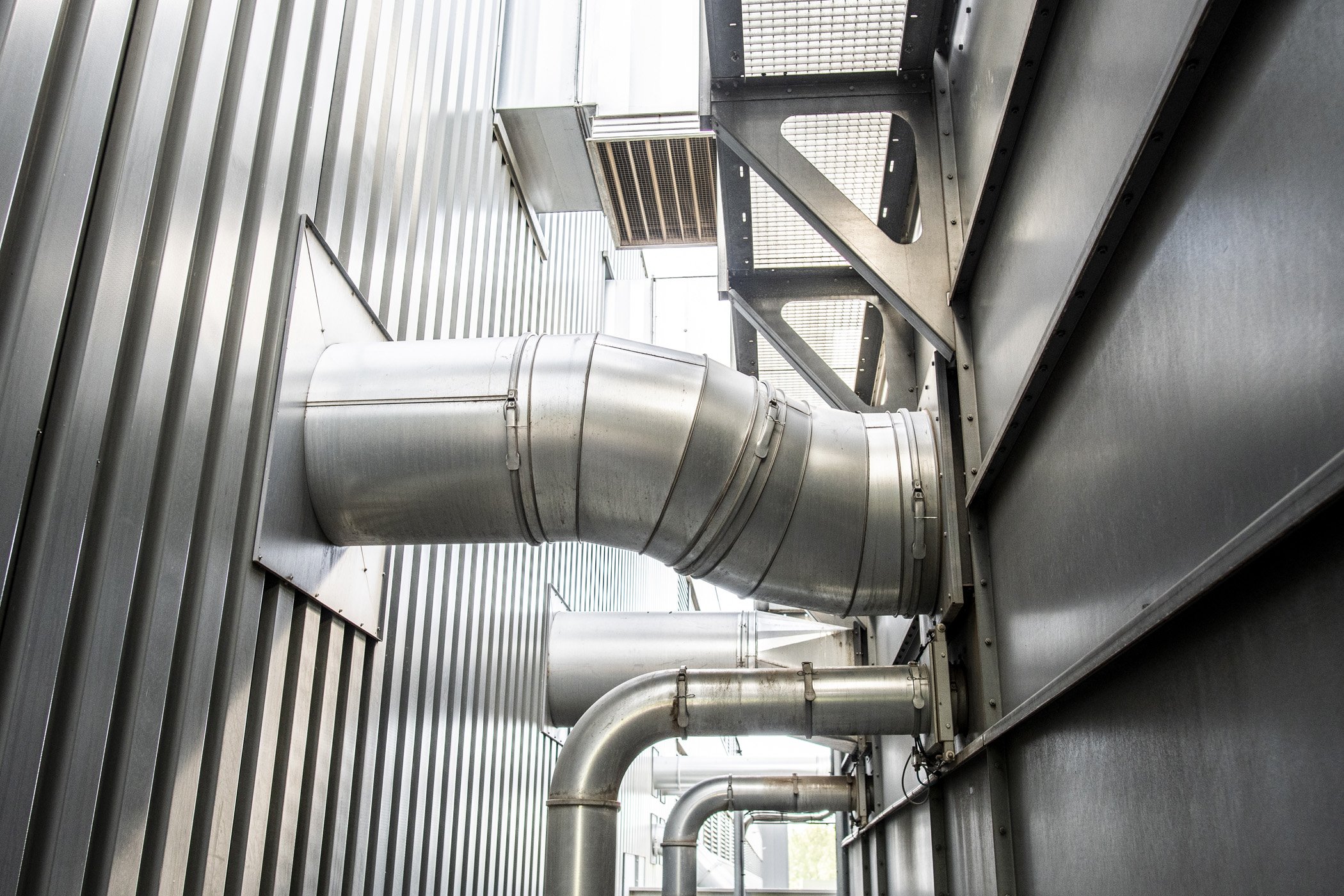
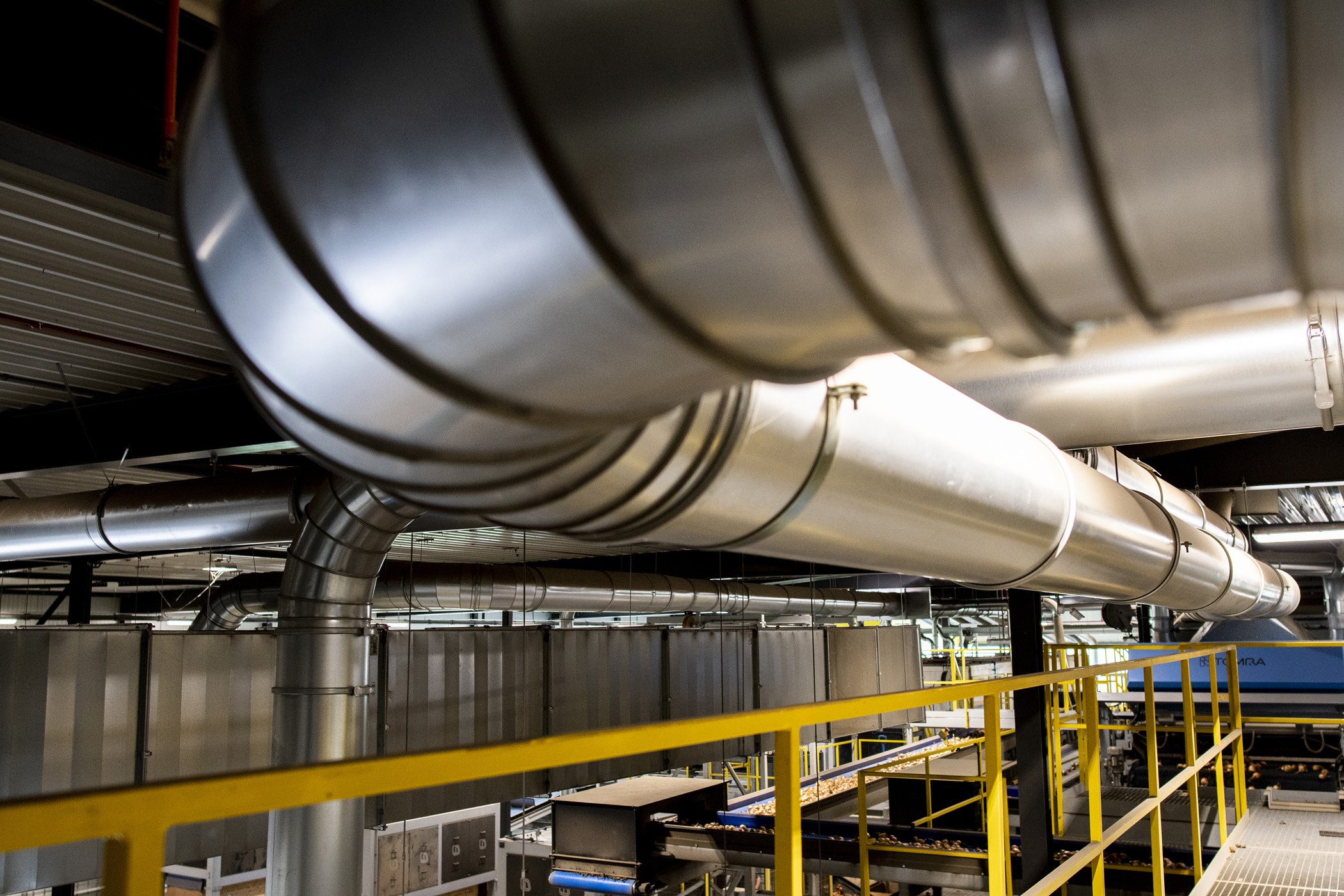
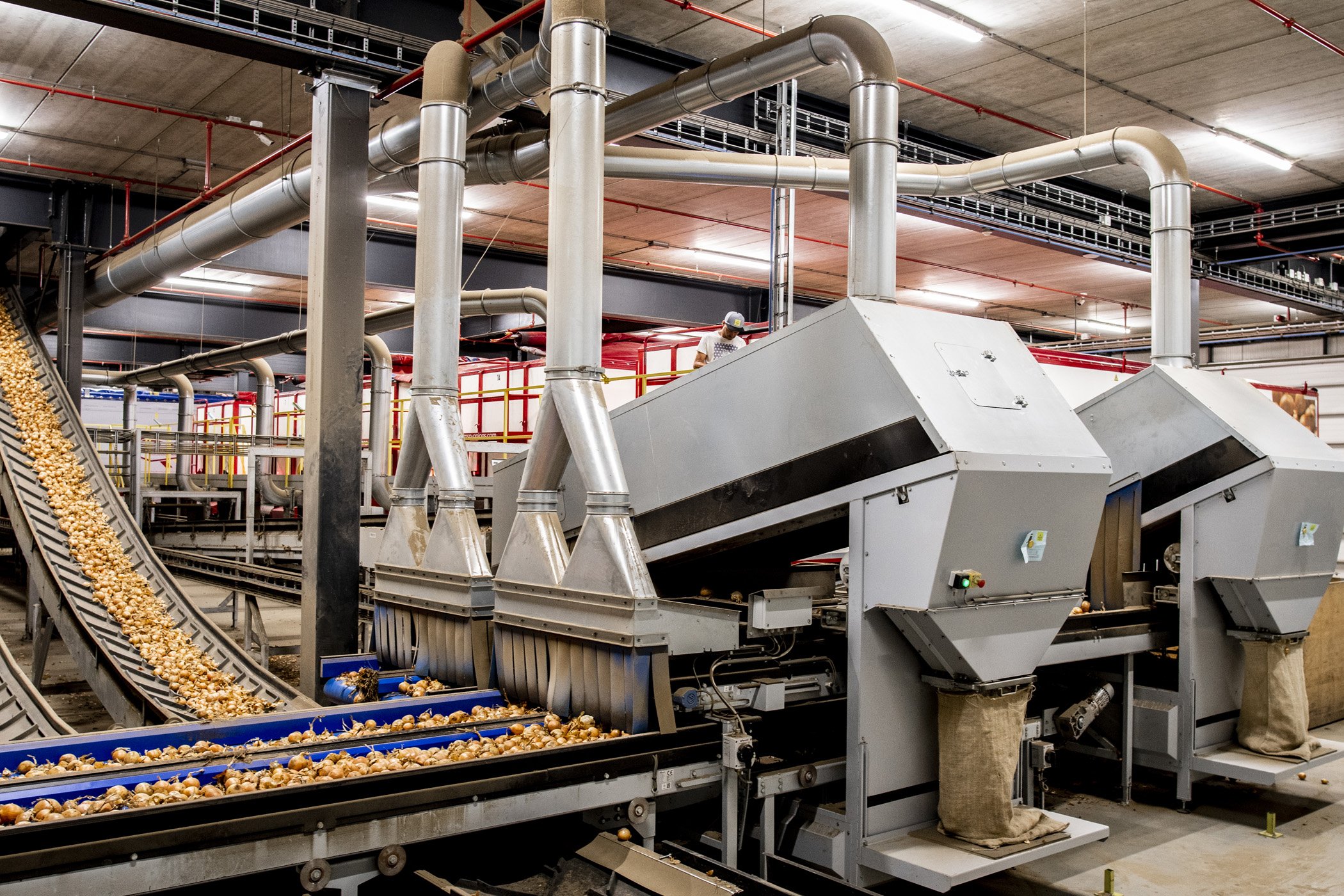
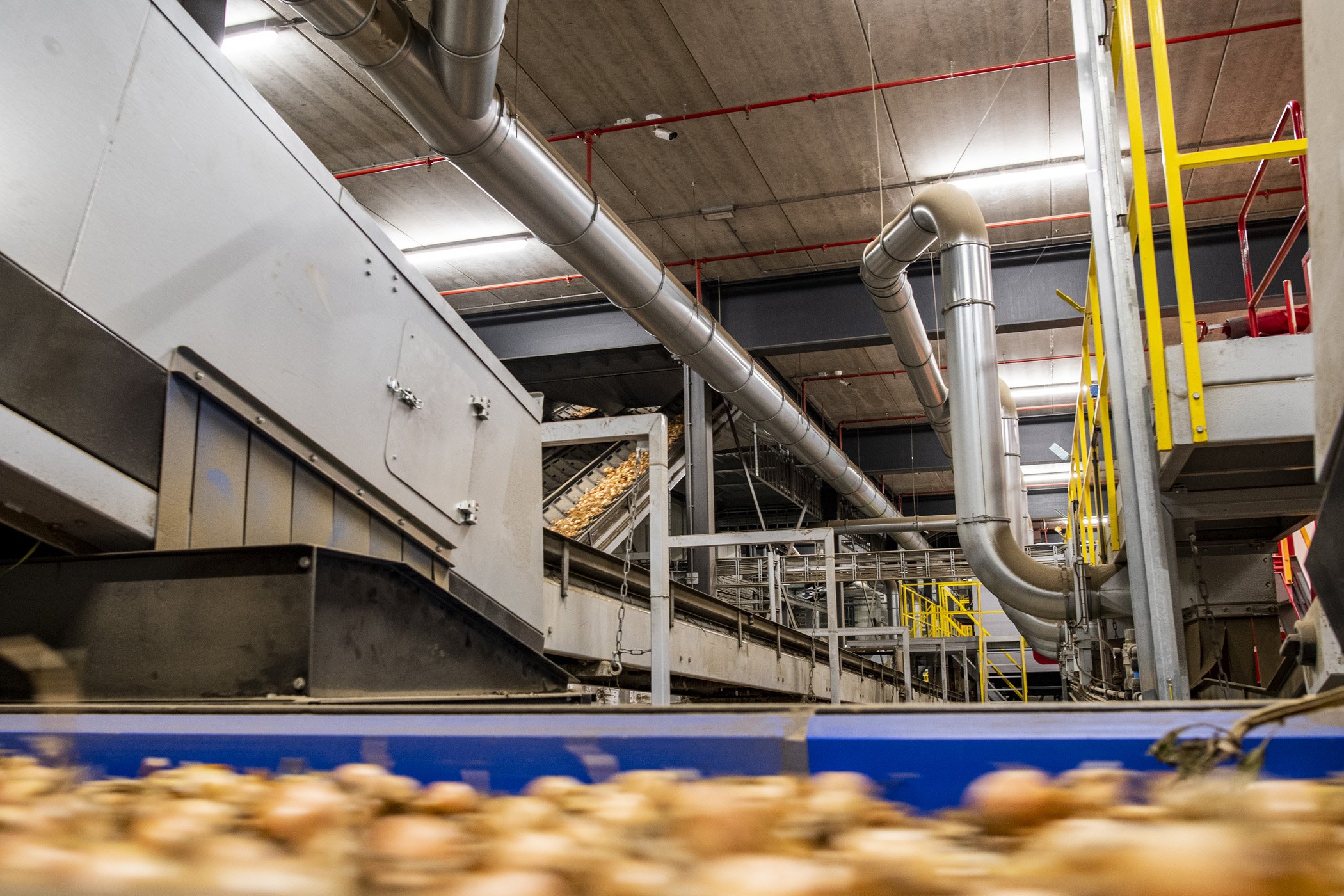
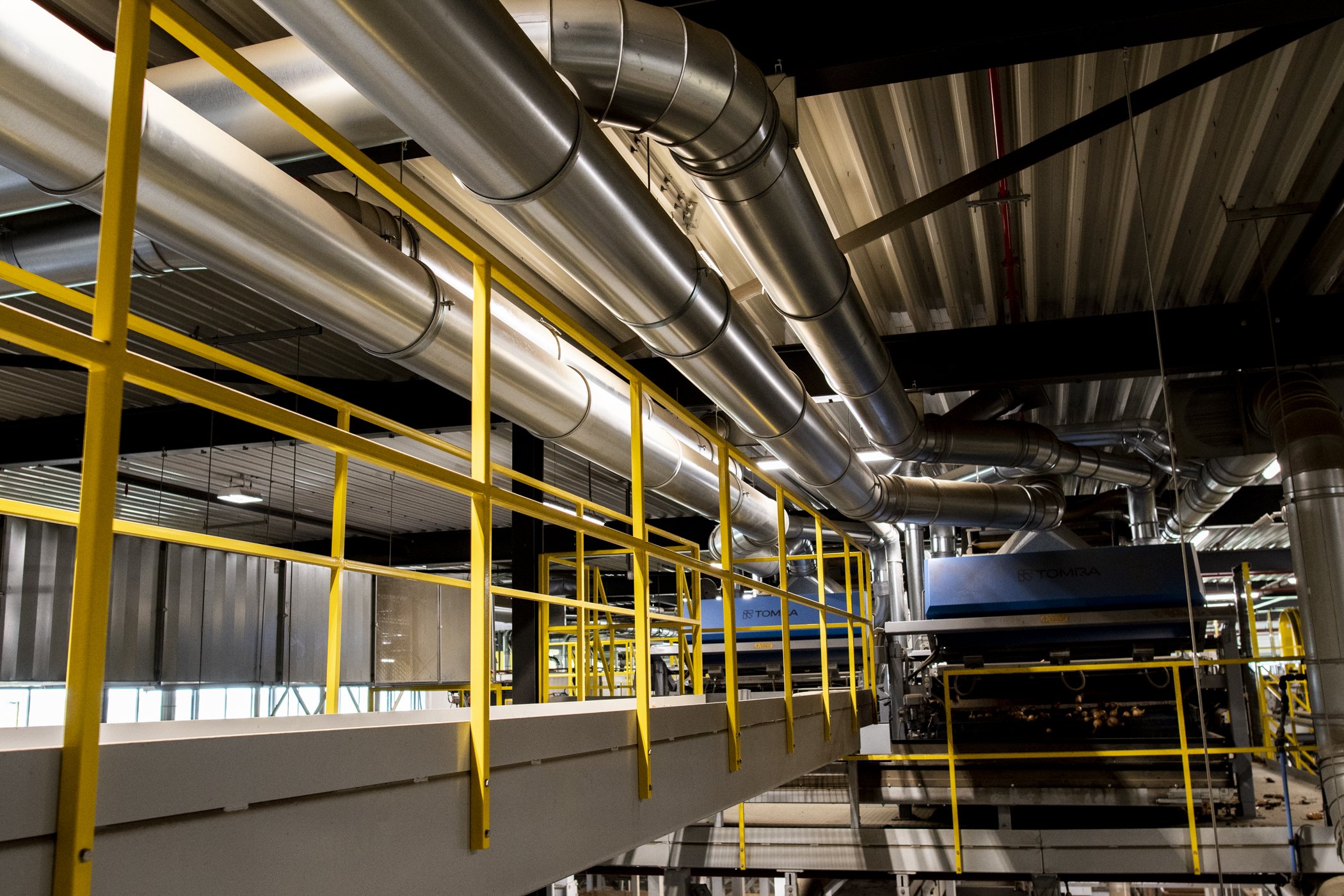
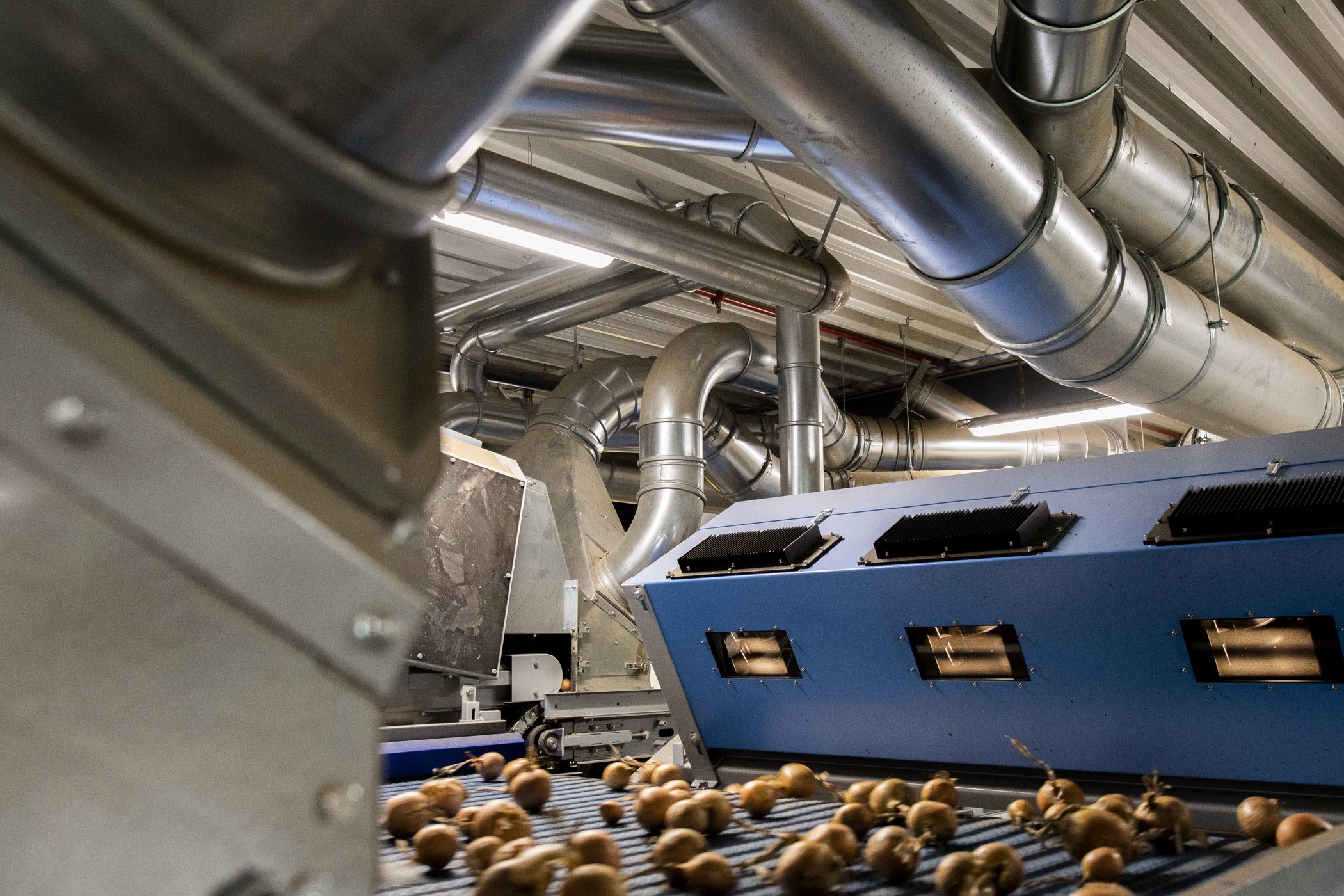
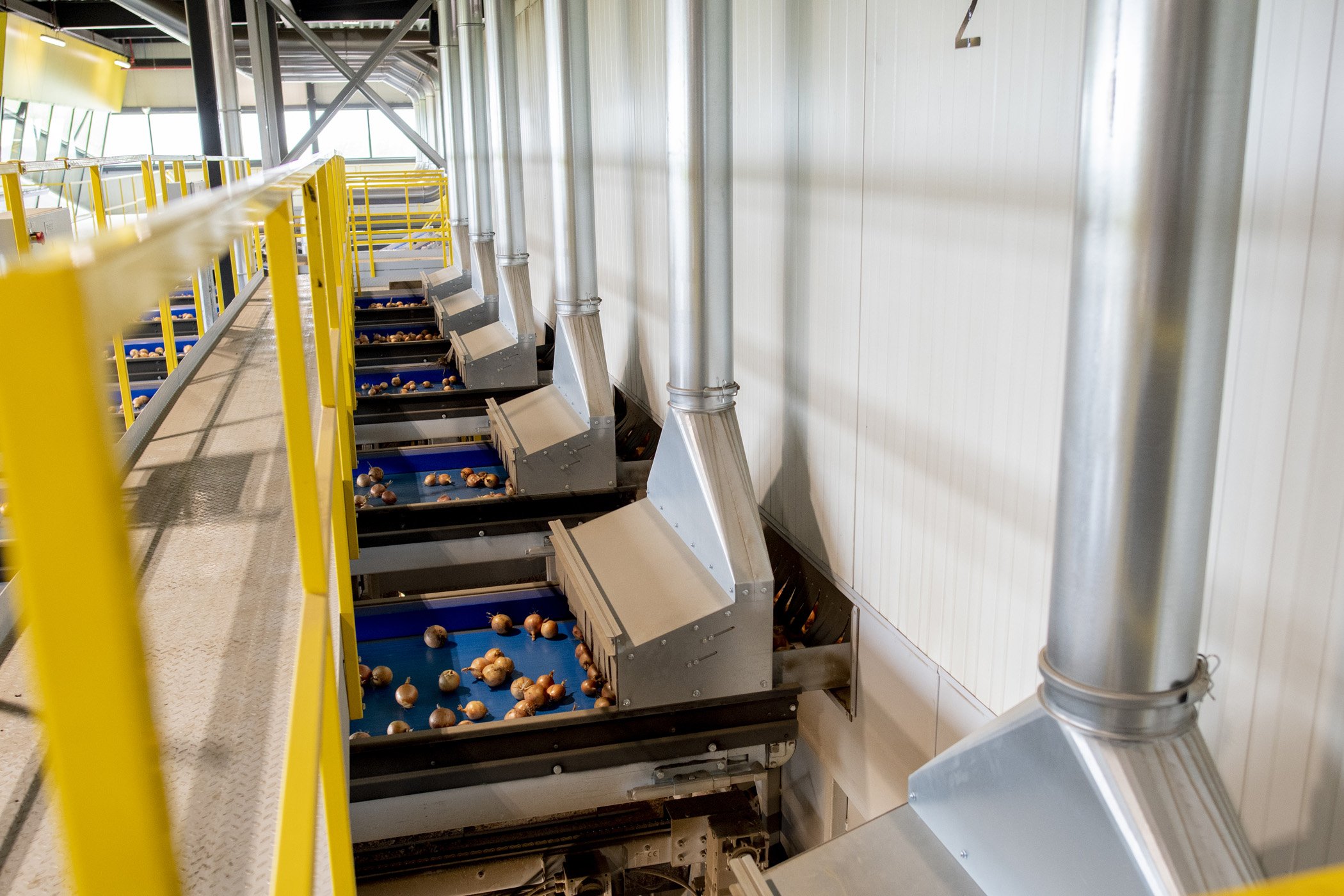
Lindert Moerdijk, sales director at MSP Onions, grew up in the agricultural sector: his father Lijn and uncles Jan and Rinus founded MSP Onions in 1983. They pass the baton to their sons Lennart, Lindert, and Benny. This new generation knew that the old way of working no longer sufficed. The increasingly stringent requirements in terms of quality and traceability, but also the tight labor market convinced the Moerdijk family that automation was the future. That’s why they invested in a fully automated onion plant. The new hall features 16 sorting lines that can process 160 onions per second, a fully automated storage shed, a packaging line that can handle 120 tons per hour, and an advanced track-and-trace system.
“Modesta filters are robust and suitable for handling lots of dust and onion skins. They’re easy to use and require little maintenance”
Easy choice
A production plant like MSP’s onion factory produces a fair amount of dust and residual flows, so Lindert knew from the start he would need to pair up with an expert in the field. “We were already using a Modesta filter installation for our existing production facility and liked working with it very much, so the choice was actually quite easy,” Lindert recalls. His technical service colleague, Maurice Nieuwenhuijse, adds: “Modestas filter systems are robust and suitable for handling lots of dust and onion skins. They’re easy to use and require little maintenance.” Another advantage is the fact that Modesta works exclusively with filter sleeves, which have a longer service life and durability than cartridge filters. “That’s a great plus for me, as I’m responsible for maintenance and service,” Maurice says.
“Being involved from such an early stage is a great advantage because dust extraction and handling of residual flows are often underestimated”
Dream project
Modesta was present from the very first meeting in the design phase of the new factory building, explains Sjoerd van Diepen, technical sales advisor at Modesta. “Being involved from such an early stage is a great advantage because dust extraction and handling of residual flows are often underestimated. If we’re included only after important decisions about the processing line have been made, it’s much more complicated to come up with solutions.” In this case, Modesta helped make important design decisions, considering factors like the prevailing wind direction and compartmentalization. Those themes are crucial, because, as Sjoerd puts it, “you’ll never win from mother nature.” He refers to situations in which the wind blows directly towards an entrance door. “The airflow inside a factory should always go from clean to dirty,” he says. “That way, you avoid an imbalance between the areas of receiving and packaging.” During the design process, a lot of different set-ups passed in review, Lindert explains: “For example, we talked a lot about residue handling.” On Modesta's recommendation, he chose multiple bunkers, which can store earth, clods, and bad onions separately.
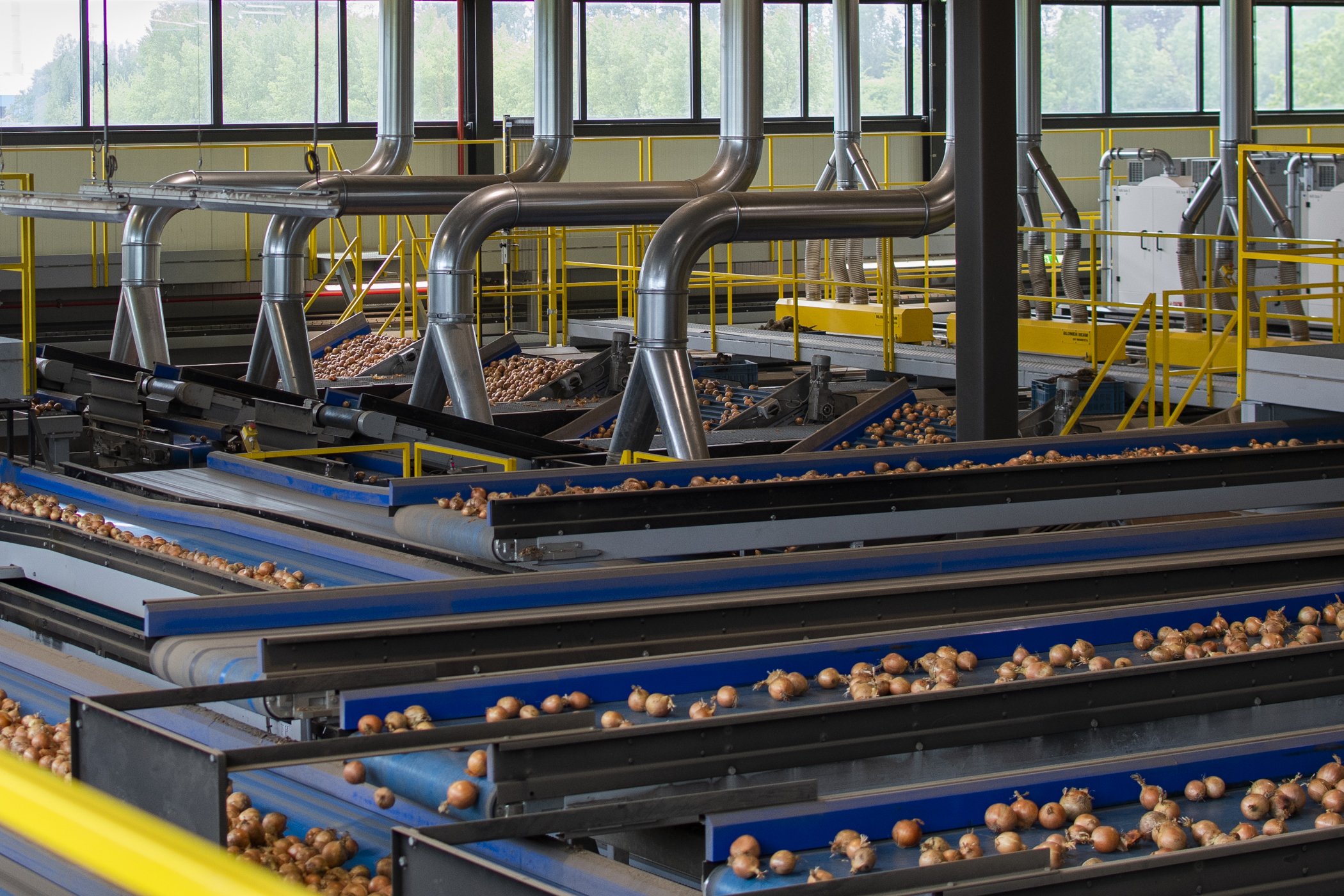
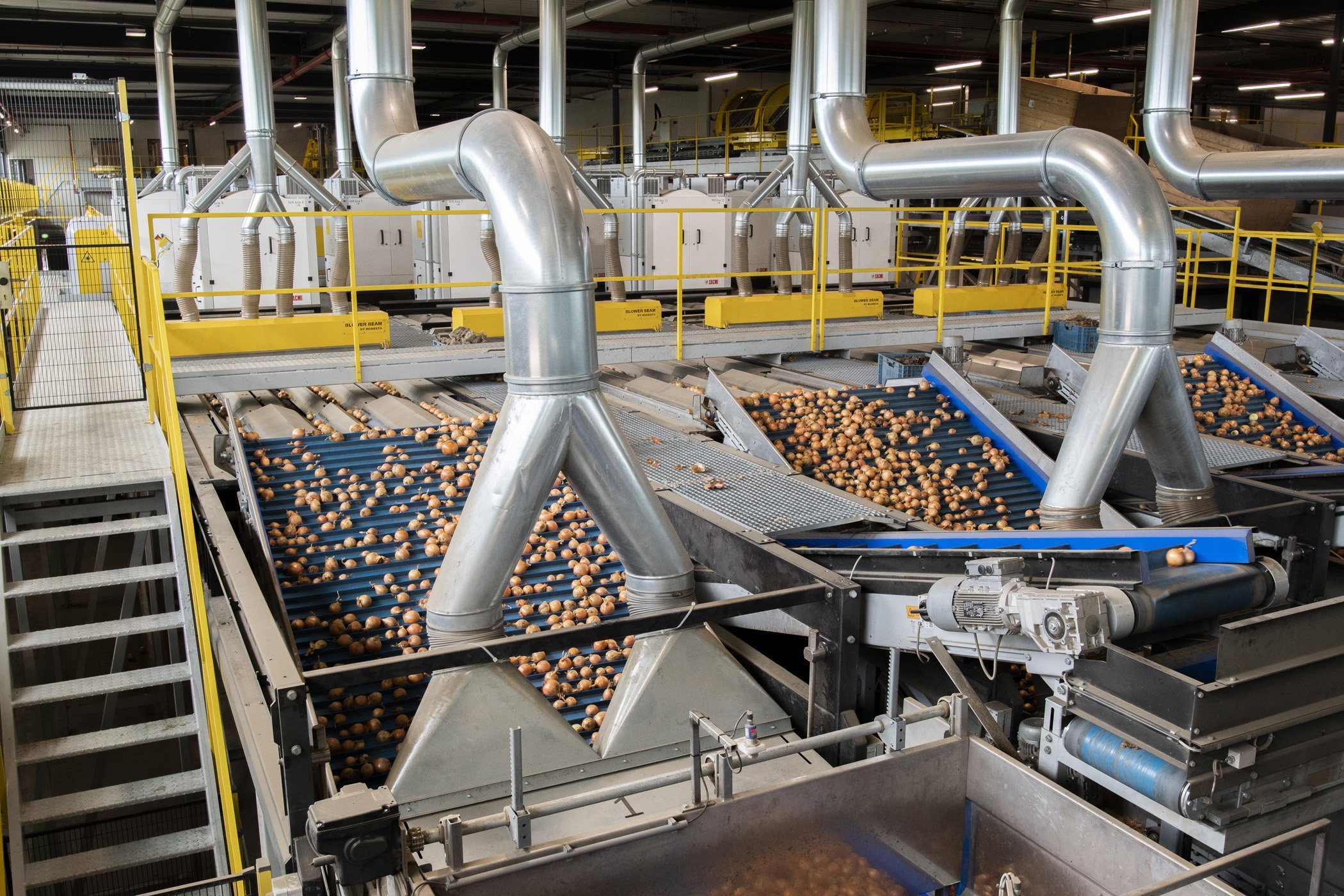
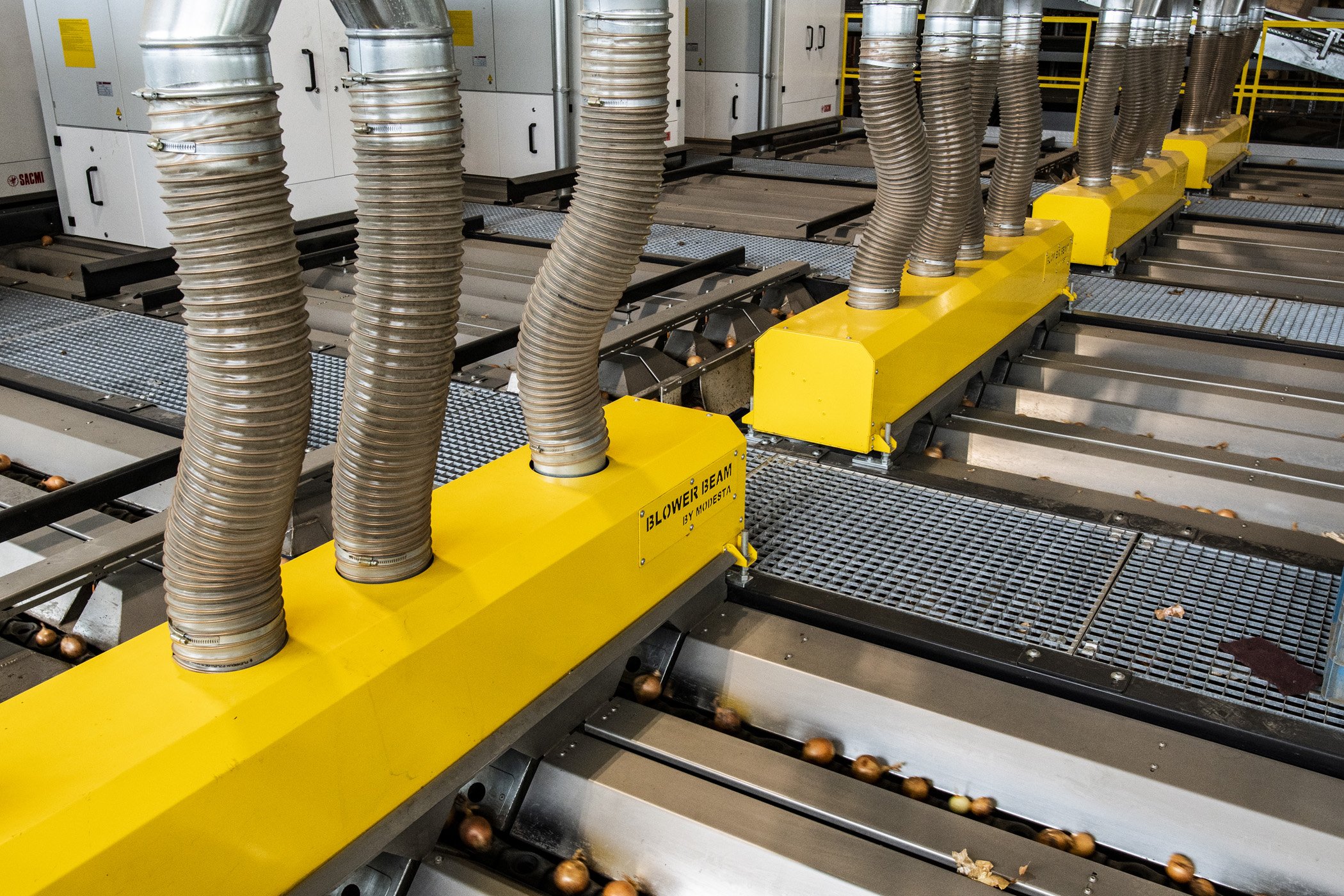
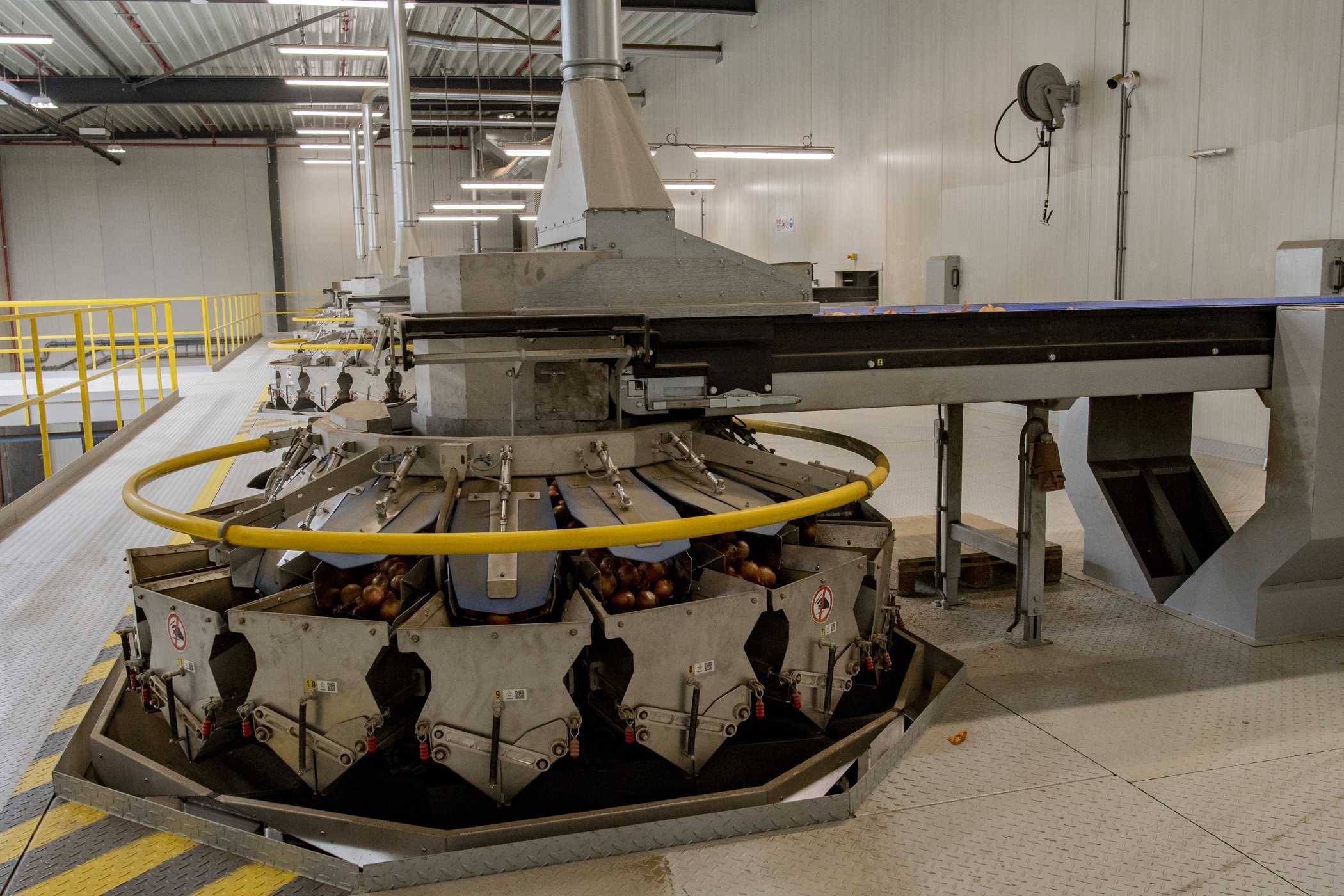
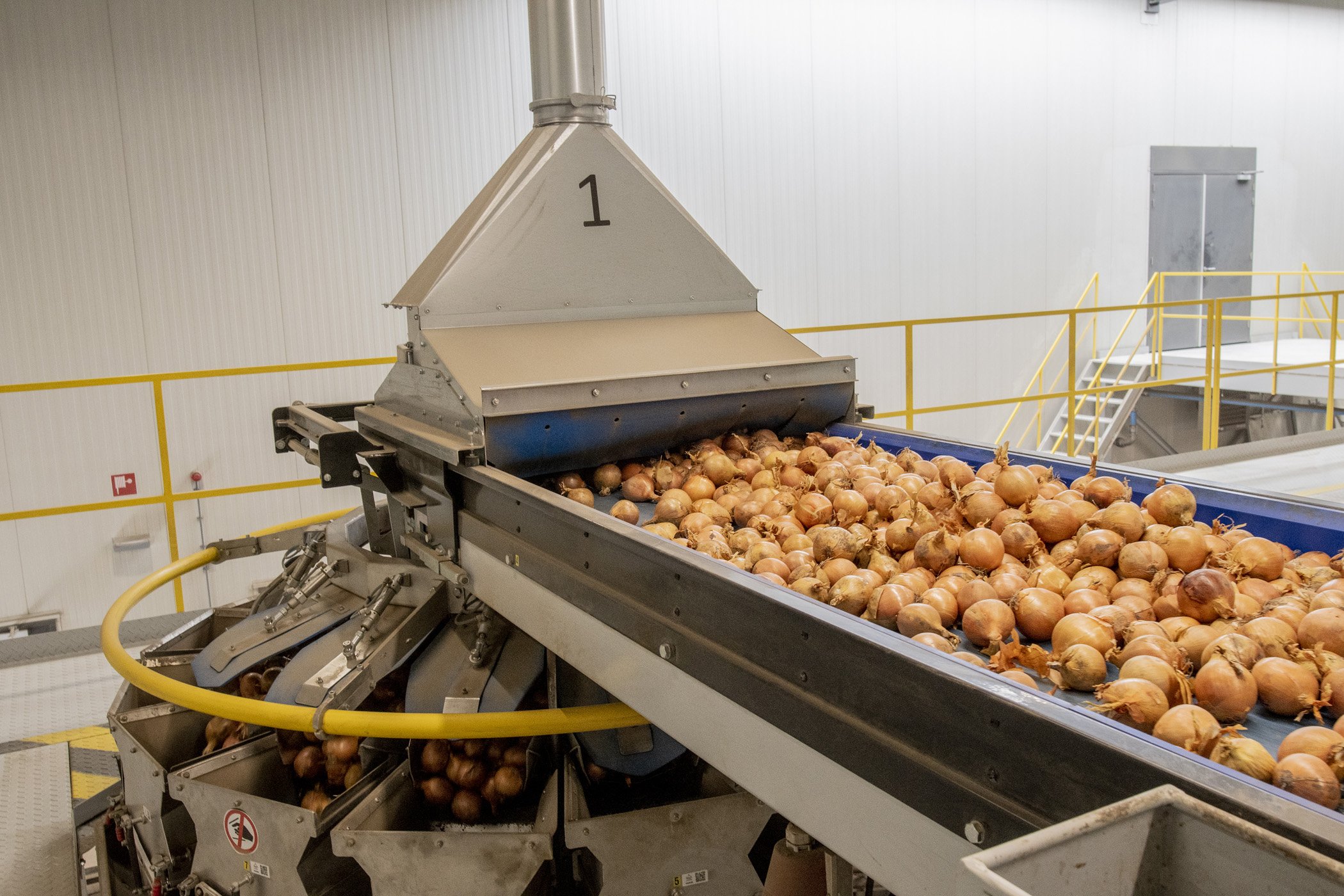
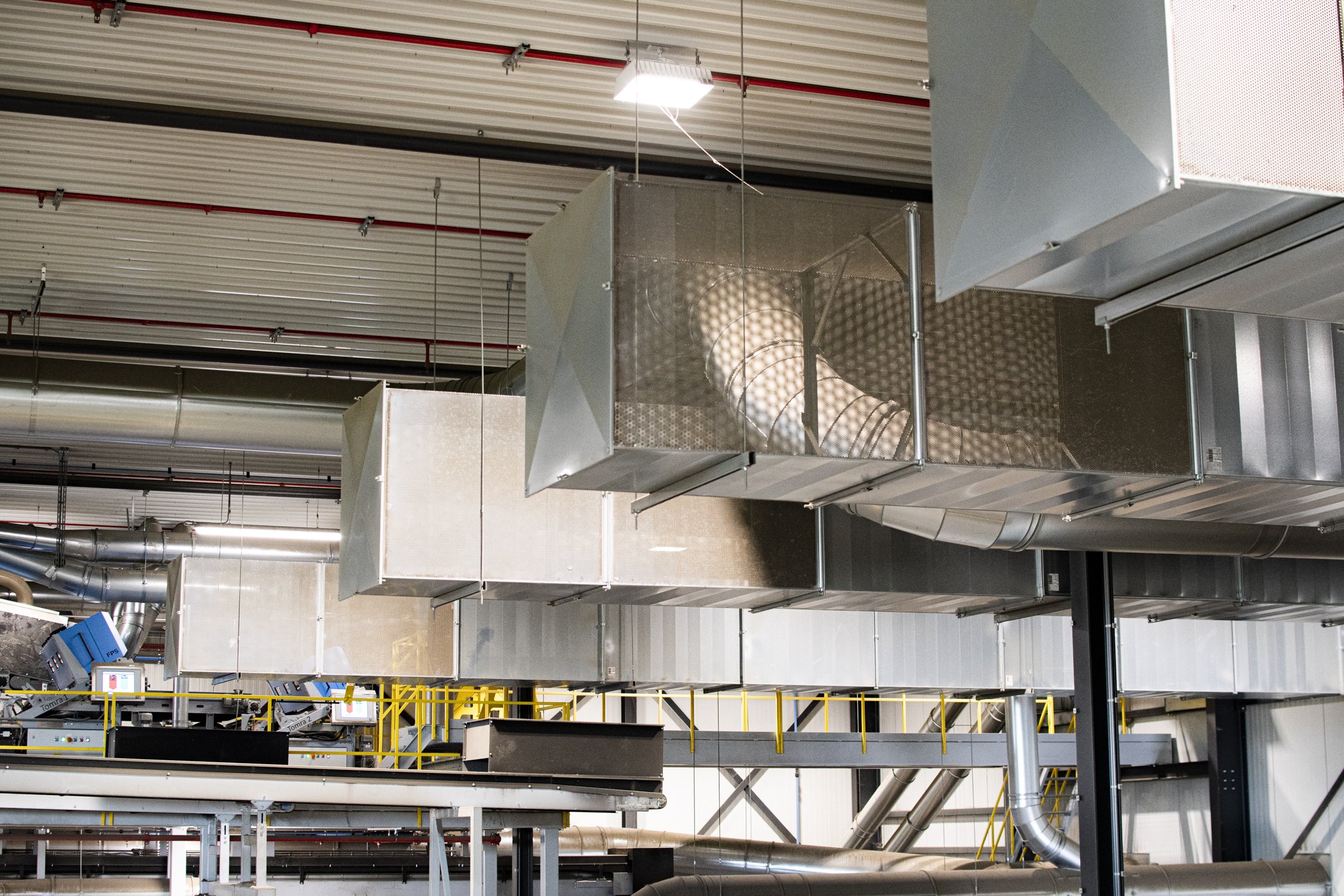
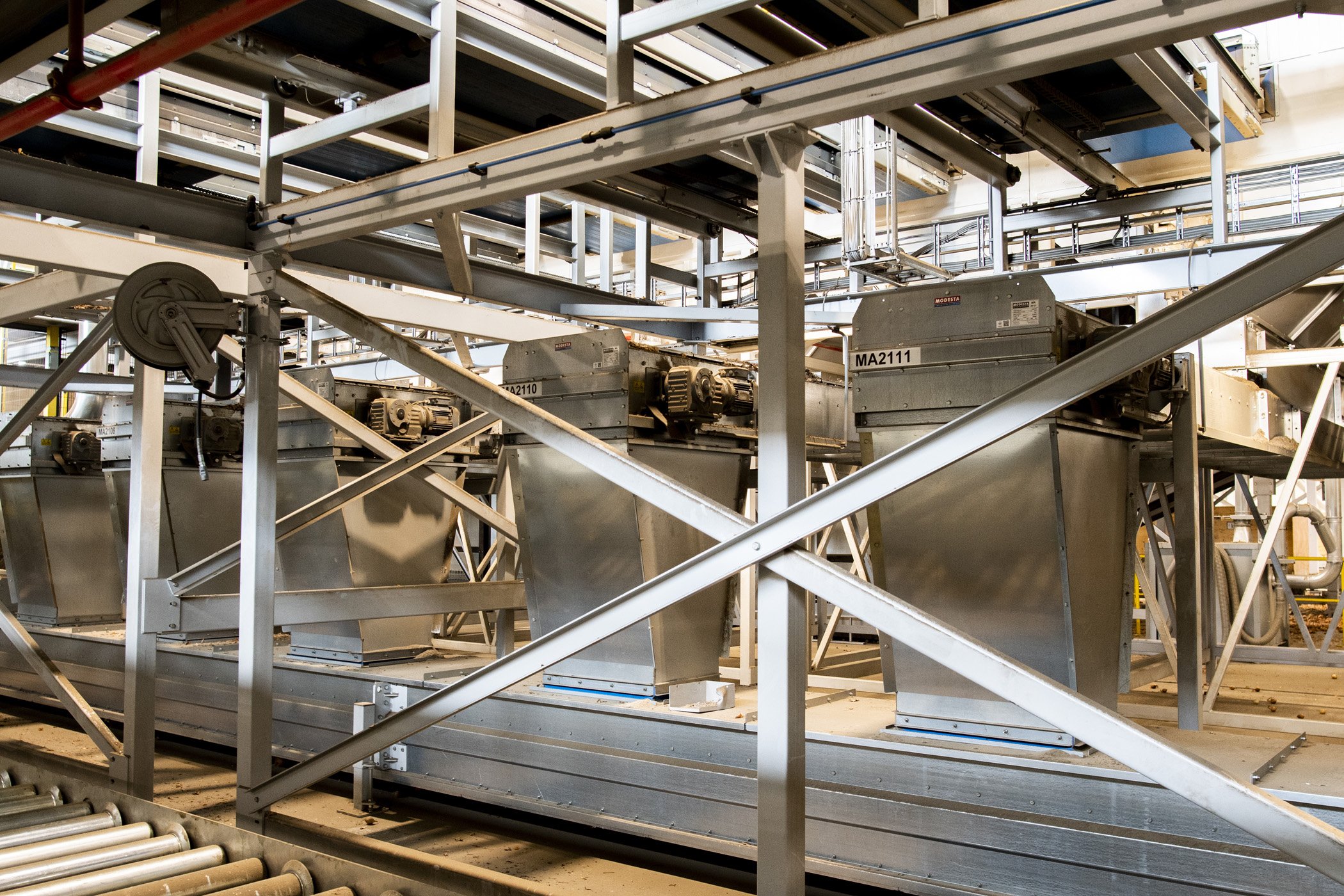
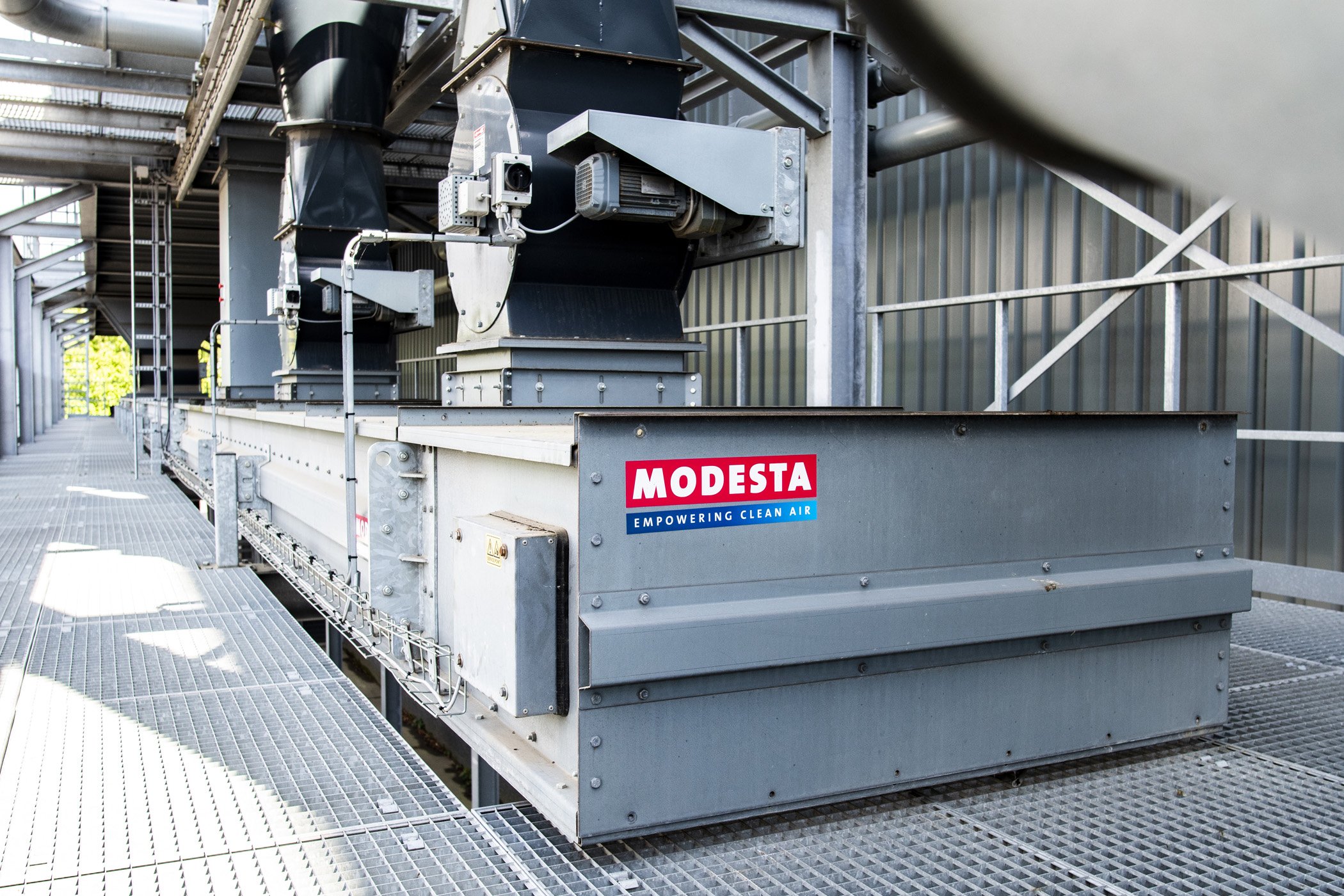
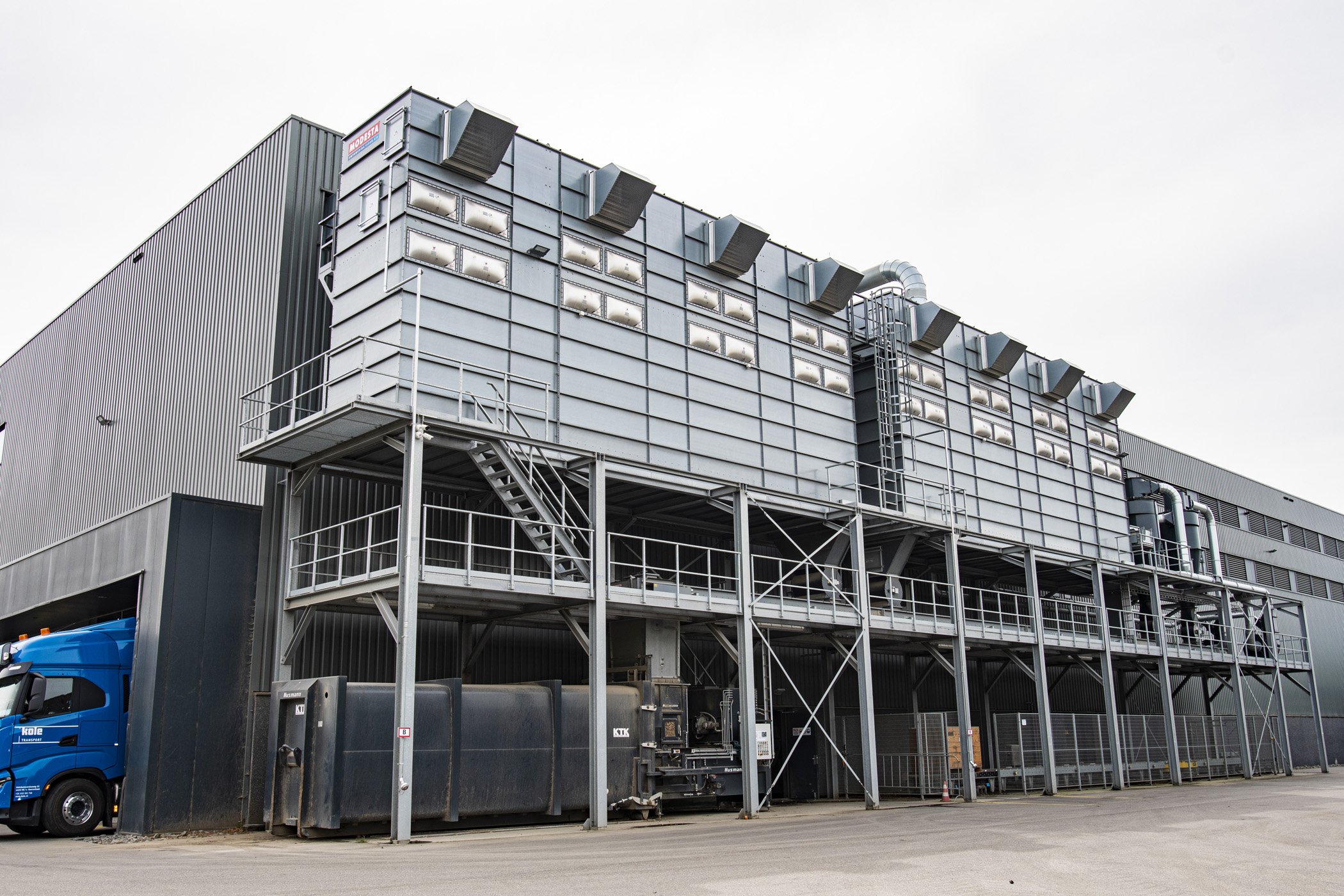
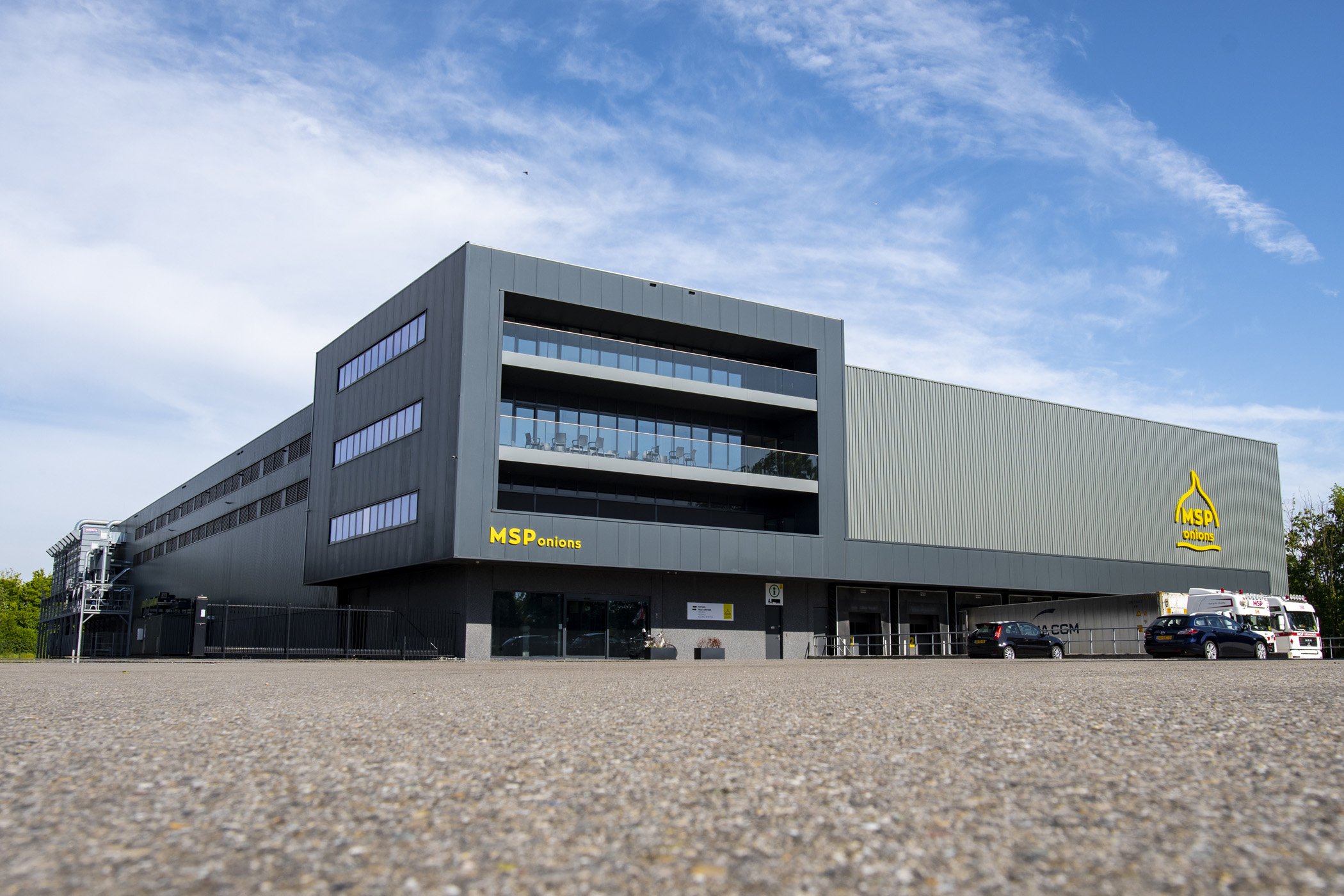
“For this collaboration, we pulled out all the stops in terms of ideas and possibilities, which led to a great end result”
Active cleaning
Modesta ended up providing a solution at almost every point in the production process: from receiving to packaging. The result is a total of 180 000 m3/h (105 943 cfm) of air technology. A windzifting cleaning system has been installed at the inlet of the pre-sorters. At the electronic sorter, a combination of dust extraction and an overpressure system ensures that the product and the cameras remain clean. Sjoerd explains: “Blower beams blow off and filter out all the loose leaves from the onion. In addition, the overpressure system ensures that dust stays outside so that the camera technology is not affected by dust.” The residual dirt from the onion toppers ends up in closed scraper conveyors totaling a length of no less than 160 meters (525 feet), which carry it to one of the two stationary compactors. This closed method prevents the dust and dirt from spreading throughout the factory.
“The dust extraction is well managed, we don’t have to worry about it. For us as MSP Onions, that’s the most important thing”
Clean working environment
MSP Onions’ plant started running in mid-2020. The two companies are currently making improvements. “It's normal that final touches need to be made. For this project, we had no frame of reference,” says Lindert. “Of our initial plan, 95% has been a good estimate; the other 5% we still need to tweak a bit.” Because MSP Onions is the first onion packer to use automatic box transport, the two companies discovered dust extraction is needed there to prevent sensor failures. Sjoerd calls the collaboration open and direct: “We can tell each other what we see and what could be improved. That always leads to optimization. MSP Onions knows what they want and I myself have 20 years of experience in onions.” Diederick adds: “For this collaboration, we pulled out all the stops in terms of ideas and possibilities, which led to a great end result.”
In the meantime, MSP Onions has served as a reference for other onion businesses that are considering Modesta’s solutions multiple times. “Our clean factory floor speaks for itself: as soon as you set foot inside our premises, you can see and feel that it’s a dust-free and pleasant here, despite the large volumes we process every day,” says Lindert. “I feel assured the dust extraction is well managed. We, as MSP Onions, don’t have to worry about it. That’s the most important thing to us.”
